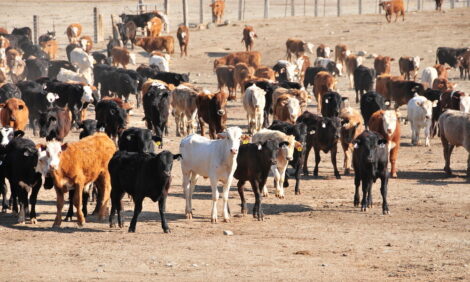



EU threat to isles' cattle herds
SHETLAND - NEW rules from Europe are jeopardising the future of Shetland's cattle breeding stock after forcing the local council to withdraw a popular local subsidy scheme.In the past 10 years the SIC has handed out an average £21,000 towards importing 14 pedigree bulls each year.
But this week the Scottish Executive Environment and Rural Affairs Department (SEERAD) confirmed that new European state aid rules brought in on 1 January this year have outlawed the scheme and that it must close at the end of this month.
The ruling comes as a major blow to one of the most fragile parts of Shetland agriculture and is likely to lead to a reduction in the quality of calves reared in the isles.
SIC agricultural officer Jon Dunn described the development as "deeply regrettable", but the council would do what it could to find alternative ways of supporting cattle producers.
The council has already had to overhaul its agricultural schemes to meet EU state aid rules, severely reducing the amount available to provide lime and fertiliser, and to help purchase beef and dairy heifers. In November 2005 the EU forced it to scrap its subsidy for finished lambs.
The Bull Purchase Scheme provided half the cost of buying and importing a bull into Shetland, where around 2,000 cattle graze.
"The quality of the Shetland cattle herd has improved enormously as a consequence of this scheme, and withdrawing it will have a negative effect because inevitably the average crofter or farmer will be looking to see if they can afford to buy as good a sire as they did with 50 per cent support," Mr Dunn said.
"The heart has been ripped out of our agricultural schemes with this, but withdrawing it does mean that our schemes are all legal now. SEERAD can hold us up as an authority which is facing up to the new legislation."
Lerwick farmer Eric Graham said losing the scheme would probably force him to reduce the size of his herd of 50 cows and go from using two bulls to one.
"It's disappointing that state aid rules have come in to scupper something which has been a huge success in Shetland. It's improved the quality of the cattle here no end," Mr Graham said.
The scheme has allowed people with small herds to compete with larger operations on the Scottish mainland and get a good price for quality calves, despite the economic hurdles Shetland faces such as the high price of importing straw.
"If people can't afford to compete with mainland people it could have a long term effect. If you have cheaper bulls coming in there will be lesser quality calves coming off them."
Source: The Shetland News


